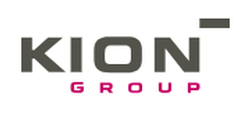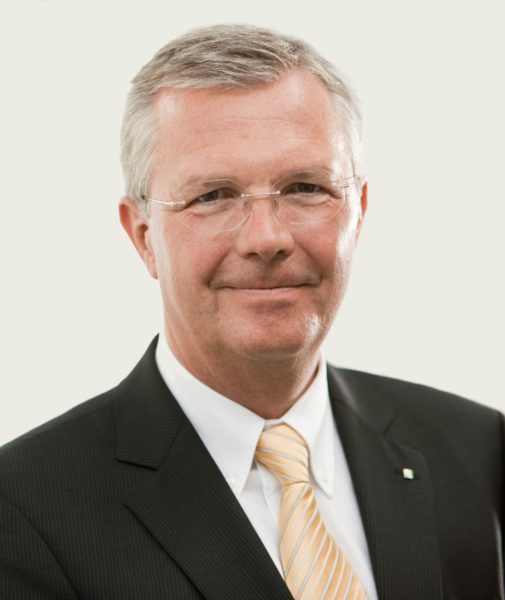
KION Group focuses on High Speed Handling
2450 West 5th North St.
Summerville, SC 29483
Phone: 843 875-8366
Fax: 843 875-8329
http://www.kiongroup.com
KION Group and Fraunhofer IML launch LoadRunner, a new generation of autonomous guided vehicles
- Intralogistics group to license the research institute’s driverless, AI-assisted guided vehicles
- Joint ‘Enterprise Lab’ to further develop highly dynamic vehicle swarm
- CEO Gordon Riske: “Artificial intelligence is revolutionizing the industry, and we are actively involved in this trend.”
KION GROUP AG and the Fraunhofer Institute for Material Flow and Logistics (IML) are joining forces to develop LoadRunner, a distributed-AI-assisted vehicle that can operate as a swarm, from prototype to market-readiness and work together on its ongoing technical refinement. To facilitate this, the research institute and the intralogistics specialist are establishing a joint Enterprise Lab. KION will also license the LoadRunner technology from Fraunhofer IML for use in its international group of companies.
LoadRunner from Fraunhofer IML represents a new generation of autonomous guided vehicles (AGVs) with substantial sorting capacity. Its distributed, intelligent vehicle coordination is designed to lift the high-speed AGVs to a new level of swarm robotics. The AGVs accelerate like a sports car and will open up a whole new level of performance. The common goal of the KION Group and Fraunhofer IML is to optimize AI-assisted swarm technology, from the basic sensor to the overarching platform, and launch it on the market.

Gordon Riske
“Artificial intelligence is revolutionizing the industry, and we are actively involved in this trend. Expanding the use of artificial intelligence in our products and software solutions is a key pillar of our KION 2027 strategy,” says Gordon Riske, Chief Executive Officer of KION GROUP AG. “The innovative LoadRunner technology and the partnership with Fraunhofer IML will help us to make our customers’ warehouse processes even simpler, faster, and more efficient. This will ease the burden on the local logistics teams and significantly increase profitability.”

Michael ten Hompel
“The AI-assisted LoadRunner is the blueprint for the intralogistics sector’s path toward a digital platform economy that is networked in real-time,” adds Professor Michael ten Hompel, Managing Director of Fraunhofer IML. “The vehicle swarms combine the capabilities of powerful sorting and material handling technology with the potential of autonomous AI-based systems. The launch of the joint Enterprise Lab with the KION Group is an important reminder of the technology’s disruptive potential. Our partnership with innovative intralogistics expert KION will open up global markets for the LoadRunner.”
Researching and fine-tuning together
A team of eight employees from both partners will work together in the Enterprise Lab at Fraunhofer IML in Dortmund to further develop the LoadRunner technology. The lab is scheduled to begin its work this September and will operate for a minimum of three years.
Currently, a LoadRunner can navigate in a swarm at up to 10m/s. If required, several vehicles and up to four passive trailers can link together magnetically to transport large and bulky items. Thanks to its maneuverability and omnidirectional running gear, the LoadRunner is perfectly suited to sorting and distribution processes. Loads are transferred without additional actuators solely by means of inertia when the vehicle brakes. Each LoadRunner can transport and sort a load of around 30kg, so it can be used to transport and sort luggage at airports, for example.
Developed by Fraunhofer IML, the LoadRunner was unveiled at the 2019 Digital Summit as part of a project funded by the Federal Ministry of Transport and Digital Infrastructure (BMVI). In September 2020, a trial using the LoadRunner for parcel sorting delivered the first promising results: with just 60 vehicles, it is theoretically possible to sort well over 10,000 items per hour. This means that 60 LoadRunners can already match the performance of a conventional sorting system. Unlike these, however, the LoadRunner requires far less fixed infrastructure and offers significantly faster start-up, flexible performance adjustment, and better scalability.
“In the ‘Silicon Economy’, the digital platform economy of the future, vehicle swarms will organize themselves and communicate with humans, platforms, and other swarms to complete their mission,” says ten Hompel. “Thanks to artificial intelligence, the LoadRunner is capable of independently negotiating and accepting orders – a revolution in logistics,” he adds.









